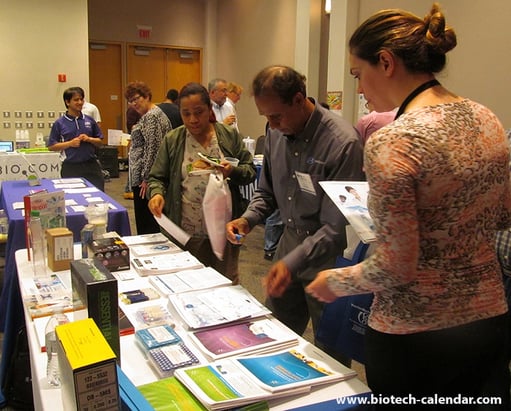Though experts may disagree on when earth’s supply of fossil fuels will be exhausted, they do agree that it will happen eventually. After all, fossil fuels typically require millions of years of degradation to create. So the race for alternative biofuels is on.
The Department of Energy (DOE) recently awarded the Washington University, St. Louis (WUSTL) $3.9 in research funding to develop bacteria that manufactures renewable biofuels. WUSTL scientists are studying Rhodococcus opacus, a bacteria that grows on toxic compounds, using them as a source of food for the production of biofuels. The goal of this research project is to produce biofuels that can completely replace petroleum-based fuels.

Scientists at WUSTL are creating new biofeul that would be carbon-neutral when burned. Image courtesy of Wikimedia.
Investigators at the university’s School of Medicine and School of Engineering & Applied Science are collaborating to make to make a new biofuel from a toxic waste byproduct of papermaking called lingnin. Unlike ethanol, which is an alcohol typically manufactured from corn or sugar cane, this biofuel will not compete with food production.
The DOE grant supports essential research being conducted in five WUSTL labs:
- The Dantas lab, led by co-principal investigator Gautam Dantas is focused on sequencing the DNA and RNA of R. opacus as it evolves to more efficiently process the raw biomass. The researchers will identify patterns in genes and metabolic pathways that are important to the processing of the compounds and that can be genetically engineered so that these pathways can be “dialed up” without waiting for generations of the bacteria to adapt and evolve.
- The Foston lab is focused on developing chemical transformation processes that extract lignin from biomass, breaking apart that lignin into a form that can be “fed” to the bacteria. The goal is to create a flexible process that generates compounds R. opacus thrives on.
- The Moon lab is optimizing the different strains of R. opacus through adaptive evolution and the use of synthetic biology tools. The researchers are growing the bacteria in these lignin-based compounds. With each generation, they select for microbes that are becoming increasingly efficient at processing the compounds.
- The Tang and Garcia Martin labs will use computer models and machine learning to map the interconnecting networks of genes and metabolism in order to predict what the microbe will do under a given set of circumstances. Understanding these networks could allow for fine-tuning of the bacteria to make use of changing sources of biomass.
- The Zhang lab is taking the compounds made by the bacteria and processing them into refined forms of fuel. This fuel will so closely resemble petroleum or diesel, it could be pumped into vehicles that are on the road today.
Professor Dantas explained in an article for WUSTL's the SOURCE, “Our team is using a combination of chemistry, systems biology and synthetic biology to try to process lignin plant matter into biofuels that can be added directly to current petroleum-based engines.”
Today’s cars can only burn fuel that contains 10 to 15% ethanol. Otherwise, specialized engines are required for running on fuel blends mostly or entirely alcohol based. Every year, millions of tons of lignin are generated from the papermaking and the lignocellulose-based biofuel industries. Currently, the lignin is only used as a fuel for on-site boiler operations. This project seeks to expand its uses into a fuel that would be chemically indistinguishable from fossil fuels.
Laboratory Equipment Suppliers Meet Face to Face with WUSTL Researchers at Upcoming Event:
WUSTL recieves research funding from many sources in addition to the DOE. For example, the National Institute awarded the university 950 grants in 2017, totally over $430,000,000. Laboratory Equipment suppliers wishing to increase their 2018 sales should plan on attending the 20th annual BioResearch Product Faire™ at Washington University in St. Louis on Wednesday, April 19, 2019.
Last year, this event attracted 227 attendees. Of these attendees, 63 were purchasing agents, professors and post docs, and 42 were lab managers. These attendees came from 28 different research buildings and 42 on-campus departments.
For more information about exhibiting at this biotech trade show call (530) 272-6675 or visit the link below:
This biotechnology trade show is an excellent opportunity for life science researchers and laboratory equipment suppliers to network and discuss their research needs and solutions. Researchers are invited to attend the on-campus trade fair for free. For more information or to pre-register, click the link below.




